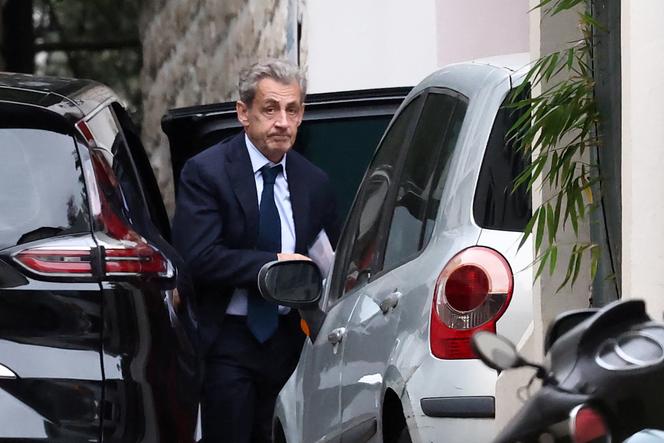


Former French president Nicolas Sarkozy will begin serving his prison sentence at La Santé Prison in Paris on October 21, Le Monde has learned on Monday, October 13, from a source close to the case, confirming earlier reporting by RTL. The 70-year-old will be the first French postwar leader – and the first former head of a European Union country – to go to jail. Sarkozy, France's president from 2007 to 2012, was sentenced last month to five years in prison for criminal conspiracy over allegations that late Libyan dictator Muammar Gaddafi helped finance his 2007 presidential campaign.
Extra security measures are expected to ensure his safety in prison, with Sarkozy possibly placed in a unit for vulnerable prisoners or held in solitary confinement. Earlier on Monday, he arrived at the financial prosecutor's office in Paris to learn the details of his upcoming incarceration. He arrived in a car with tinted windows, then left again three-quarters of an hour later without making a comment, according to Agence France-Presse (AFP) journalists. An AFP photographer then saw him return home.
Sarkozy has denied the charges and immediately appealed his September conviction. A new trial is expected in the coming months. The Paris appeals court has up to 18 months to organize it. Once jailed, his lawyers can petition the appeals court for his release, but he will remain in custody unless it decides otherwise.
During the trial, prosecutors argued Sarkozy and his aides, acting with his authority and in his name, struck a deal with Gaddafi in 2005 to illegally fund his victorious French presidential election bid two years later. Investigators believe that in return, Gaddafi was promised help to restore his international image after the West blamed Tripoli for bombing a plane in 1988 over Lockerbie, Scotland and another over Niger in 1989, killing hundreds of passengers. Presiding judge Nathalie Gavarino said the offenses were of "exceptional gravity" and therefore ordered that Sarkozy actually be incarcerated.
The court's ruling found Sarkozy was guilty of criminal conspiracy. But it did not follow the prosecutors' conclusion that he was the beneficiary of the illegal campaign financing. He was acquitted on separate charges of embezzling Libyan public funds, passive corruption and illicit financing of an electoral campaign.
Sarkozy has faced a litany of legal problems since the end of his mandate. The country's top court last year upheld his conviction and one-year jail sentence for graft over attempting to secure favors from a judge in 2014. He served three months of that time with an electronic tag earlier this year, before being granted conditional release.
Separately, he has received a one-year jail term – six months in prison with another six months suspended – for illegal financing of his 2012 campaign. Sarkozy has also faced repercussions beyond the courtroom, including losing his Legion of Honour – France's highest distinction – following the graft conviction.
Legal woes aside, the man who styled himself as the "hyper-president" while in office still enjoys considerable influence and popularity on the right of French politics and has been known meet regularly with President Emmanuel Macron.
